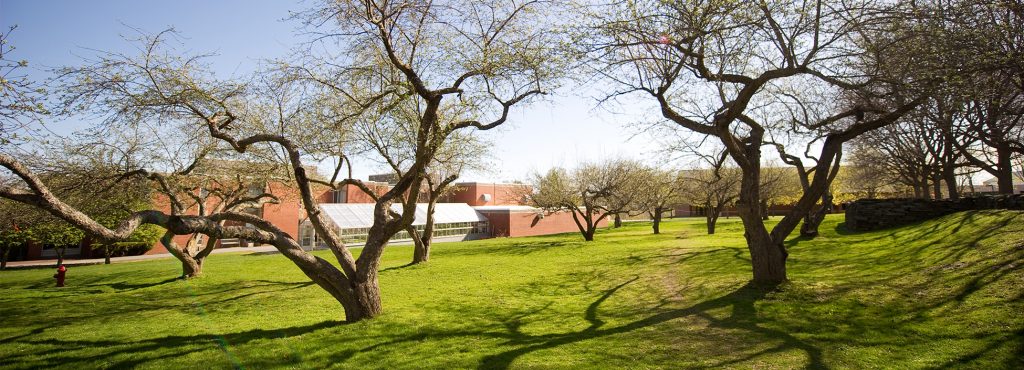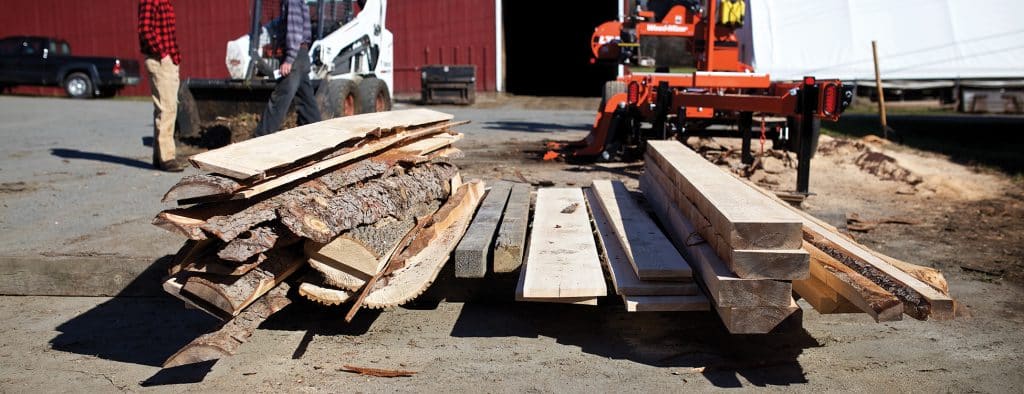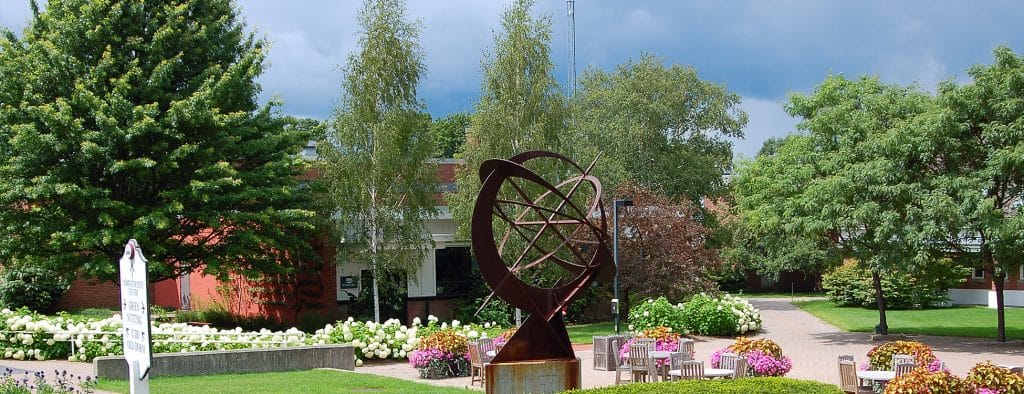On August 9, 2022, U.S. Secretary of Commerce Gina Raimondo announced that the Department’s Economic Development Administration (EDA) would award a $1.2 million grant to Vermont Technical College to expand the college’s agricultural workforce development and entrepreneurship training programs. This grant is funded by the American Rescue Plan and will support the establishment of agricultural and food entrepreneurship coursework designed…
Forestry
Vermont is the Green Mountain State, with 78% forest cover. Prudent management of this resource is critical to our culture and the rural economy. The forest products industries contribute about $1.5 billion annually as family-wage jobs dispersed throughout the state in a wide range of careers. Large and small businesses own, manage, or harvest these forestlands. Other businesses are making natural wood products for American families from these raw materials. Related opportunities are offered in forest resource careers in public, non-profit and private sectors. Vermont Tech is at the heart of this activity.
The Associate of Applied Science degree in Forestry has its foundation in:
- Practical Skills: Vermont Tech is well-known for its hands-on approach. With our two actively-managed campus woodlots and commercial sugarbush, students are outside for actual field work, gaining experience with the tools of the profession. Off-campus, we have access to the real world of forest management and forestry practices.
- Industry Exposure: Vermont Tech is connected with the forest industry for field trips, internships, and the latest innovation with actual practices.
- Integrated Courses: Our courses integrate a wide range of subject matter with practical skills. For example, the dendrology course is not just tree identification. It covers silvical characteristics of trees, along with introduction to forest ecology and silvicultural methods for forest management, and initial field skills for forest measurements.
- Classroom Instruction: A wide range of knowledge is important along with field skills. The Forestry degree includes general education requirements, forestry technical education, and the computer skills needed in the profession.
- Career Opportunities: The associate of applied science degree in Forestry prepares students for a range of careers in forest management, natural resources, or the forest products industry. Graduates can obtain a Vermont Forestry license after completing four years of SAF certified Forester experience and passage of the SAF certified forester exam. Students will have a wide range of skills needed to be successful entrepreneurs and forestry professionals in private practice, forest industry, or government service.
The Forestry degree is ideal for students looking for career opportunities that lead to working with the land in a STEM field. According to a recent change in licensing regulations, educational requirements for the Vermont Forestry license now require an associate degree in Forestry.
Scholarships: While there are no program-specific scholarships available at this time, additional scholarships are available.
Announcement: Vermont Tech and The University of Vermont have signed an agreement for a formal pathway from the Forestry associate degree to UVM’s Bachelor’s degree in Forestry or related Natural Resource Management degree within the Rubenstein School of Environment and Natural Resources. Vermont Tech graduates can transfer seamlessly to UVM as juniors to complete their bachelor’s degree.*
*Credit and grade requirements apply. The UVM application fee is waived for Vermont Tech graduates of the Forestry program.
A student with an Associate of Applied Science in Forestry will be able to:
- Apply knowledge of the forestry and logging industries to effectively and professionally communicate technical information in writing, speaking, listening, and interpersonal skills to work as part of a team and interact with clients, the public, and industry professionals
- Apply knowledge of timber science and technology to forestry and logging industry problems that require extensive practical knowledge
- Demonstrate familiarity with tree identification; functions of a forest ecosystem; natural community and site indicator species identification; forestry inventory data collection; mapping skills; operation of a chainsaw and sawmill; maple management and production; and timber harvesting techniques
- Create a forest management plan
- Combine knowledge of the forestry and logging industries with practical aspects of organizing and managing a small business; marketing, applying accepted accounting practices; managing a forestry or logging operation budget; and writing business plans for forestry or logging operations
Curriculum Details
Job Projections
13,200
Projected Employment Growth for Forest and Conservation Workers, 2019-2029 (source: BLS)
Employers
- State Department of Forestry
- Forestry Consulting
- Conservation Organizations
- Sawmill
- US Forest Service
Job Titles
- Forestry Technician
- Procurement Forester
- Extension Forester
- Maple Sugar Manager
- Wildfire Suppression
- Watershed Manager
- Wood Manufacturer
- Forestry Specialist
- Forestry Entomologist
- Logging
- Arborist
Student Stories
Student Stories
Benjamin Kerstetter
news
-
15Aug
-
18MayRead more
Vermont Technical College has been awarded a $250,000 grant from the state’s Working Lands program to increase meat processing courses at the school. State agriculture officials say the money will create a number of certificate opportunities for students. Officials say about 70 students a year will learn the trade which ultimately will help address workforce shortages in the industry. “Vermont livestock producers…
-
17MayRead more
Vermont State University, the first statewide, hybrid higher education institution in the United States, launched its unified brand identity and logo during a live virtual broadcast today. The unveiling is a major milestone in a transformation process unifying three institutions – Castleton University, Northern Vermont University, and Vermont Technical College. Sixteen months ago, the Vermont State Colleges System initiated a…




